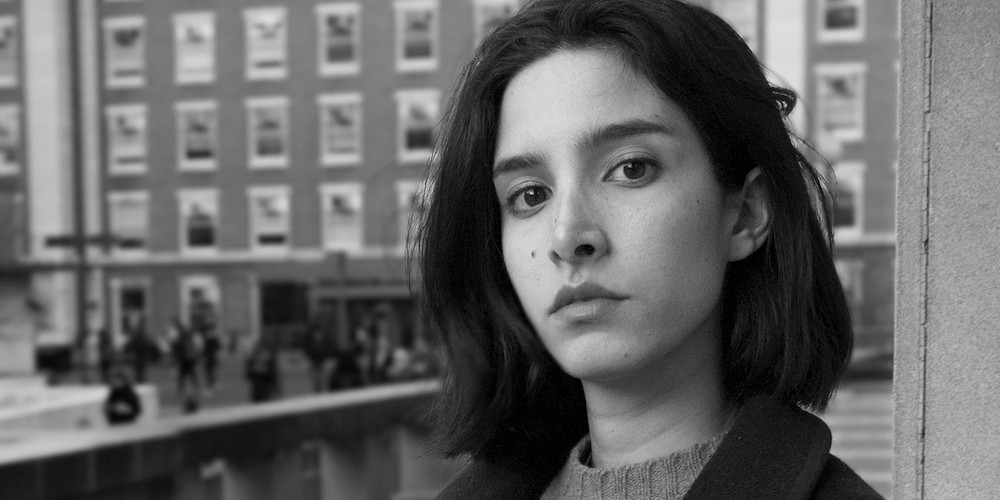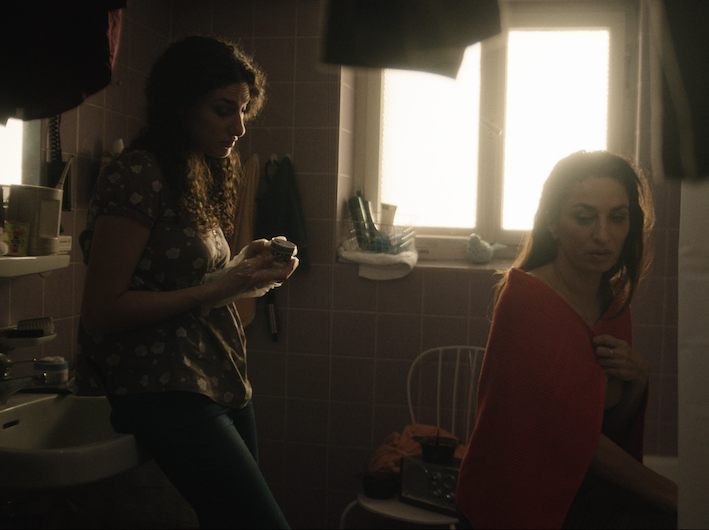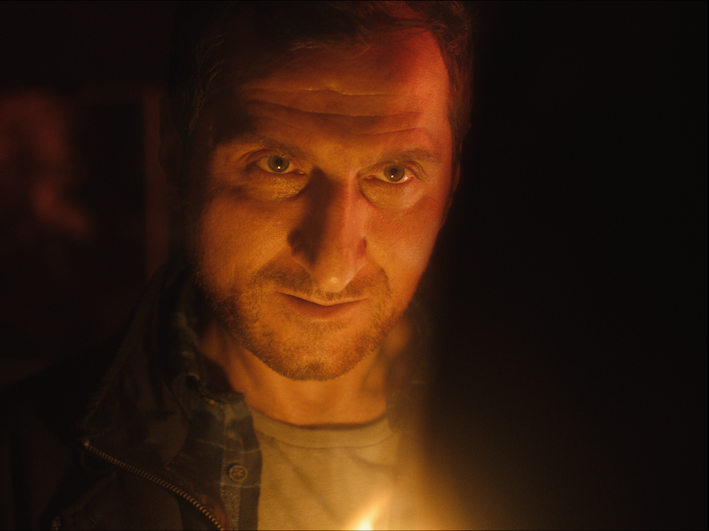On A Global Scale: Pinar Yorgancioglu '16 on Craft and Content
On A Global Scale is a bi-weekly series about international co-productions by Columbia filmmakers.
Welcome to another edition of On A Global Scale. This bi-weekly series celebrates the international spirit of the Columbia University film program and the incredible global collaborations coming out of it.
This week we spoke with Turkish alumna Pinar Yorgancioglu '16 about the shaping of her voice as a filmmaker, her upcoming feature film Those Who Whistle After Dark, and language barriers on set.
What’s your background and how did you get into filmmaking?
Pinar Yorgancioglu: I don’t have a clear answer to that. More than anything I always loved telling stories, but I'm an introvert—so finding the correct medium for those stories has been my journey. I started writing short stories as a teen (and I still do as a secret hobby) and I wanted to be a writer but I was bad at it. Then I studied Communication Design in college, and somehow found myself in film. How one thing led to the other is a mystery to me.
What were your main take-aways from your time at Columbia?
PY: I know there are different approaches, but I like it better when the craft serves the content, as opposed to the other way around. To me, that’s the whole difference between film as sole entertainment versus film as an art form. Columbia was great at teaching the craft; but more importantly it was great at creating a culture that focuses on the story and the unique voice telling it. The level of vulnerability, courage, patience, and maturity that is required to create a unique and honest voice takes a whole lifetime of fine-tuning. It’s important to surround yourself with collaborators who understand and value this. Cultivating a similar environment around me is what I aspire to now as I build my career.
What was your path following graduation and what do you suggest international filmmakers focus on as they prepare to take a similar path?
PY: I think priorities differ a lot depending on the situation per filmmaker—whether they took a loan or not, if they are from a country economically and politically stable enough, or if they arrived on Fulbright and must leave the US immediately after, whether they have financial dependents, etc. I don’t think I can really suggest a certain path; but what worked for me was building a portfolio and applying for an O-1 visa immediately after graduation. This allowed me to stay in the US to take side gigs and build connections for a bit, while I focused on my debut project. Once the script was in shape to start traveling in labs and pitching platforms, being in Europe made more sense, so I made the decision to move to Turkey, and be based here at least until this project is over.
You work both in the US and in Turkey? How do you manage to cross borders through your filmmaking?
PY: I am not yet at a point in my career where I can financially depend on my own films alone. I make a living collaborating with other filmmakers as an editor, and it is through those collaborations that I find myself working beyond borders. It helps build a perspective I find otherwise impossible, and keeping those relationships close is tremendously important to me. Geographically it’s not always easy to organize, but COVID forced everyone to find ways to work around the physicality of their job, and that’s been helpful.
You shot your short film Mrs. Nebile’s Wormhole on location in Germany. How was that experience different for you than shooting in Turkey or the US?
PY: The main difference of my experience in Germany was not really speaking or understanding the language beyond basic needs. On set, with the pace we were working at, people were speaking in German within their departments, and faster than I could comprehend. Normally, I am used to being more hands-on and wearing multiple hats on set. In Germany, the language barrier stripped my communications down to just my actors and department heads and having to sit back and rely on them honestly helped me focus better on directing and nothing else.
You’re working on your feature project Those Who Whistle After Dark. What is the current status of it?
PY: It launched in the Sarajevo Talents' pitching platform and then partook in the Biennale College Cinema right after, both of which are wonderful programs. COVID did throw our initial plans into mayhem, like it did everything else, but we are now scheduled to shoot in 2022.
What is the feature about, where is it set and what drew you to writing it?
PY: I started writing it while I was still in New York, inspired by a story my friend Tesia told me, which involved an angel sighting. A similar sighting gets our story going, too. It’s set in modern Turkey. The newly retired father, a previously simple man with small dreams, receives a visit from a nihilist angel and tries to bear the burden of this existential anxiety alone. And this sets a series of crises in motion for his wife and daughter as well.
You’re also an editor. How does that influence your perspective on directing?
PY: Honestly, I think I learned more about directing through editing than directing itself. Playing with raw material, seen on screen for the first time, is a whole different experience than writing on page or directing or looking through the camera on set.
Do you have anything else in the works right now?
PY: I am writing a mini series that’s very much in early development, but really Those Who Whistle After Dark is my main focus right now.
Pinar Yorgancioglu is a New York and Istanbul based Turkish filmmaker and an alumna of Columbia University MFA Film Program. She is a co-founder of the Istanbul based Makarna Film. The short films she directed travelled internationally at film festivals including the Warsaw Film Festival, Palm Springs International Shortest, Antalya Golden Orange, and Xining FIRST! Film Festival; and won awards and accolades at festivals such as the Istanbul Film Festival. Her last short film Mrs. Nebile's Wormhole was the recipient of the production grant from the Filmakademie Baden-Württemberg and was shot on location in Germany. Her work as a freelance director includes web-series, music videos, and commercials. As a freelance editor she works on both narrative and non-narrative material in short and long form media. She is currently working on the development of her feature debut, which was selected to the Screenwriting Lab, organized by !F Istanbul and the world renowned Sundance Institute.


